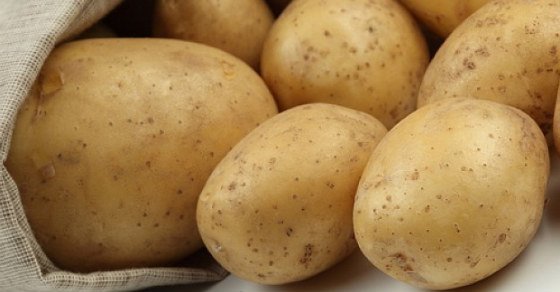In today’s rapidly evolving agricultural landscape, genetically modified organisms (GMOs) have become increasingly prevalent, with potatoes emerging as a significant focus of biotechnological innovation. Understanding the nuances of these new GMO potatoes is crucial for consumers seeking to make informed dietary choices.
The Science Behind GMO Potatoes
Genetic modification involves precisely altering a potato’s DNA to enhance specific characteristics. Unlike traditional breeding methods, modern biotechnology allows scientists to introduce precise genetic changes that can dramatically improve crop performance. For example, companies like Simplot have developed potato varieties with remarkable features such as:
- Reduced bruising and browning
- Lower acrylamide levels during cooking
- Enhanced resistance to plant diseases
- Improved nutritional profiles
Health and Safety Considerations
One of the most pressing concerns for consumers is the potential health implications of consuming GMO potatoes. Extensive scientific research conducted by regulatory agencies like the USDA and FDA has repeatedly demonstrated that approved GMO potatoes are as safe as their conventional counterparts.
Key safety assessments typically involve comprehensive evaluations of:
- Potential allergenicity
- Nutritional composition
- Toxicological profiles
- Long-term health impacts
Identifying GMO Potatoes
Recognizing whether you’re consuming a GMO potato can be challenging, but several strategies can help:
- Check Product Labels: Look for “bioengineered” or GMO labels required by recent federal regulations.
- Examine Variety Names: Some GMO potato varieties like Innate and White Russet have specific brand names.
- Contact Manufacturers: Many companies provide transparency about their potato sourcing.
Regulatory Oversight
The United States maintains a rigorous approval process for GMO crops. Before a GMO potato can enter the market, it must pass stringent evaluations from multiple agencies, including:
- USDA’s Animal and Plant Health Inspection Service (APHIS)
- Environmental Protection Agency (EPA)
- Food and Drug Administration (FDA)
Environmental and Agricultural Impact
GMO potatoes offer potential environmental benefits that extend beyond individual crop performance. By developing potatoes with enhanced disease resistance and reduced waste, biotechnologists aim to create more sustainable agricultural practices.
For instance, potatoes engineered to resist late blight disease can significantly reduce the need for chemical fungicides, potentially decreasing environmental contamination and protecting crop yields.
Consumer Perspectives and Choices
While scientific evidence supports the safety of GMO potatoes, consumer perception remains mixed. Some individuals prefer organic or non-GMO alternatives, which are readily available in most grocery stores.
For those concerned about GMO consumption, potential alternatives include:
- Purchasing certified organic potatoes
- Buying from local farmers who specialize in non-GMO crops
- Growing personal potato crops using non-GMO seed varieties
Future Outlook
As agricultural technology continues advancing, GMO potatoes represent just one frontier of potential innovation. Ongoing research focuses on developing crops that can address global challenges like food security, nutritional deficiencies, and climate change resilience.
Ultimately, understanding GMO potatoes empowers consumers to make informed decisions aligned with their personal health priorities, dietary preferences, and environmental values.






